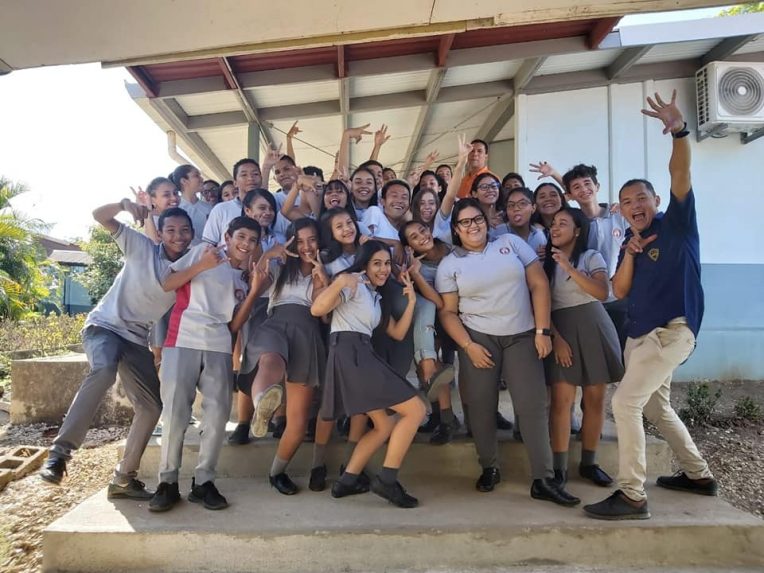I would never trade my experience in the Peace Corps for anything. I stand by my statement 127 percent (I was never good at math), and yet that does not mean the journey was easy. As early English poet Anne Bradstreet once wrote, “If we had no winter, the spring would not be so pleasant: if we did not sometimes taste of adversity, prosperity would not be so welcome.”
Peace Corps Volunteers invariably face some hardships during their 27 months of training and service. As with life, no amount of education or information can perfectly prepare you for each and every challenge you will face. As a new English teacher in Costa Rica in 2018, one of the greatest hurdles I faced was the transition from in-country Pre-Service Training (PST) to my new host community. During PST, soon-to-be Peace Corps Volunteers are together immersed in intensive classes and applied experiences in four areas: language, technical preparation for the job, cross-cultural adaptation, and health and safety. I knew I was spending only three months in PST with my colleagues and that its joys and challenges would help prepare me for the future.
Once PST was over and we were officially Peace Corps Volunteers departing for our host communities, I was forced to confront the fear and uncertainty that I felt at the very beginning of my Peace Corps journey. I no longer had the luxury of time. I could no longer refuse to face the challenges that lay before me.
“I think one of the greatest misconceptions that those who want to join Peace Corps have is that it’ll be THEIR experience, that successful volunteers did it by themselves.”
The first couple of weeks in my new community were a perfect storm of all the things that could’ve gone wrong. First, Costa Rica at the time was in the midst of what would become the longest coordinated strike held by the teachers’ unions in the country’s history. This tension between the unions and the government meant that I could not enter my school and begin to engage with my students. So, many of the programs and lessons I had in mind had to be postponed for an indeterminate amount of time. Not only that, but I was now experiencing the frustration that comes from attempting to communicate in less-than-stellar Spanish. As if it couldn’t get any worse, this was around the time the first pang of homesickness hit. I felt lonely. Fortunately, my director and program manager were both incredibly supportive, and they reassured me that they understood my problems.

So, why did I stay? I realized that I actually could succeed. Not on my own, but with the community that I was given.
I realized that I couldn’t do this on my own. I think one of the greatest misconceptions that those who want to join Peace Corps have is that it’ll be their experience, that successful volunteers did it by themselves. In doing so, we tend to lionize the individual and diminish the support system that made that individual successful in the first place. Rather, it’s our experience: mine and those in my community.
There are few things more liberating in life than to know that you don’t have to do it on your own. I couldn’t do it by myself. But I could do it with others: my counterparts, my host family, my students. They, and the lifelong friends I made in the Peace Corps, have been and continue to be a source of strength and encouragement. To say that this was my experience, therefore, would be utterly wrong. It was our experience; it was our journey.
Thinking back, I always consider my Peace Corps service as held together by a wonderfully complex contradiction. On the one hand, I saw myself growing up and maturing because I understood how important the individual can be in making communities and societies better. Everyone has to pull their weight, including a certain volunteer who friends say seems to always be out of shape yet can talk a rock to death (obviously not me). On the other hand, I also witnessed firsthand the importance communities have in shaping and encouraging the individual. The love and support I received when I was at my lowest were from those who didn’t know me all too well, yet embraced me unconditionally. If that isn’t the essence of the Peace Corps experience, then frankly, I don’t know what is.
Dani Park is the Stevenson Center’s public relations graduate assistant, as well as a Peace Corps Fellow in sociology. The content of this post does not necessarily reflect the views of the U.S. Government, the Peace Corps, or the Costa Rica Government.
APPLY NOW to serve with Peace Corps in 2021, or connect with Illinois State’s regional recruiter! Peace Corps Prep will accept applications in the fall.

